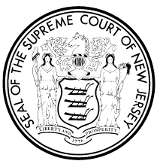 In a unanimous decision issued today in John Paff v. Galloway Township, et al, the New Jersey Supreme Court held that under the Open Public Records Act (OPRA), “information in electronic form, even if part of a larger document, is itself a government record [and that] electronically stored information extracted from an email is not the creation of a new record or new information; it is a government record.”
In a unanimous decision issued today in John Paff v. Galloway Township, et al, the New Jersey Supreme Court held that under the Open Public Records Act (OPRA), “information in electronic form, even if part of a larger document, is itself a government record [and that] electronically stored information extracted from an email is not the creation of a new record or new information; it is a government record.”
Thus, it appears that going forward, the public is generally entitled to information stored in government databases, subject to normal confidentiality constraints and payment of a service charge if extraction of the requested data requires “a substantial amount of manipulation or programming of information technology.”
In its ruling, the Court rejected the Appellate Division’s April 18, 2016 opinion that held that for electronically stored information, “OPRA only allows requests for records, not requests for information.” The Supreme Court held that the Appellate Division’s “position cannot be squared with OPRA’s plain language or its objectives in dealing with electronically stored information.”
The Supreme Court also ruled that courts are to grant no deference to decisions or information advice given by the New Jersey Government Records Council (GRC) except when the Appellate Division considers appeals of GRC decisions. It also recognized that while “[i]t may take only two to three minutes for an IT Specialist to make accessible fields of information from two weeks of emails; it will take considerably longer for the Township Clerk and Chief of Police to determine whether the requested information in each email may intrude on privacy rights or raise public-safety concerns.” Accordingly, the Court remanded the matter back to the trial court to address any such confidentiality concerns.
I was ably represented in the case by Walter M. Luers of Clinton.

